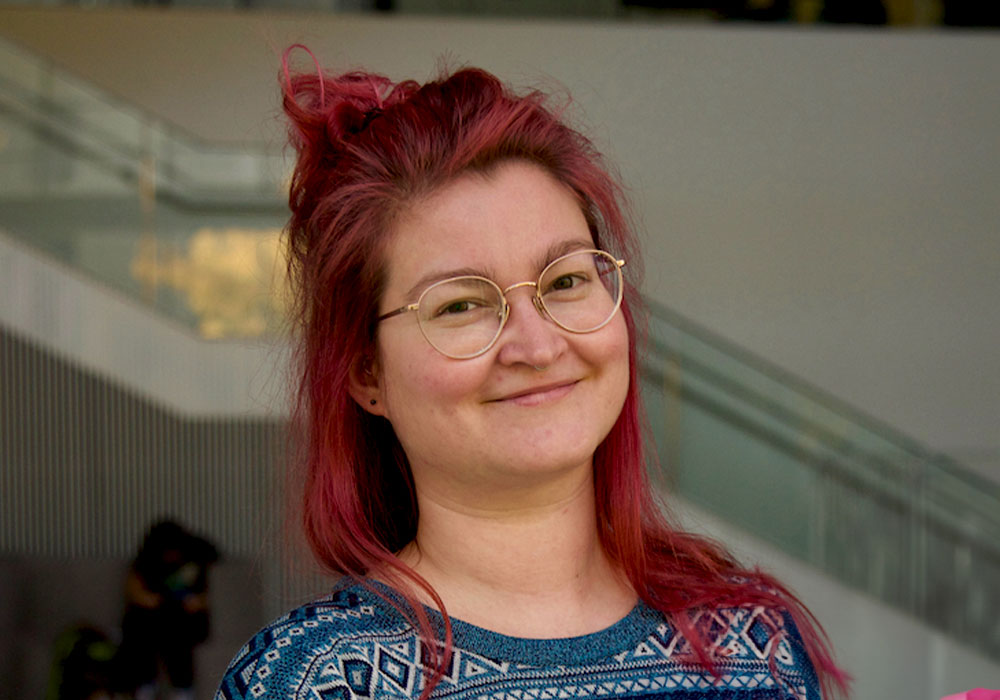ACII 2024 full-day workshop
From Lab to Life: Realising the Potential of Affective Computing
September 15th 2024
Location: ARC-237A, Advanced Research Centre, University of Glasgow
Zoom link: https://teamworkfocus.zoom.us/j/98991145400
Machine capabilities are on the rise. New advances in AI and Robotics have enabled the creation of ever more competent artificial systems that have the potential to contribute to various types of human activities. However, for this potential to result in a step-change in how humans and machines interact and work with each other, machines also need to be competent at understanding their human counterparts. How can task-competent machines become competent teammates, assistants, and companions for human users? How can technology make sense of human behaviour, responses, and experiences?
Affective Computing research has been spearheading the effort to answer these questions and resolve challenges of human-machine interaction. To take the unique insights and innovations developed in Affective Computing from lab prototypes to robust and reliable technology solutions for human users, there is a need for academic and industry researchers to come together. In this workshop, we create a forum for this conversation structured around three specific themes: (1) ethics and regulations, (2) industry perspectives, and (3) academic perspectives.
Expected outcomes & impact: Through discussions around the above three themes, we will highlight key challenges on both sides that can be resolved collaboratively. From technological challenges faced by industry to technology transfer hurdles in academia, to ethical and regulatory concerns that need to be addressed to bring technology from labs to life.
Speakers

Alex Bulat-van den Wildenberg
Alex coordinates Capgemini’s Group Technology operations and is a member of the Capgemini Technology, Innovation and Ventures Global Council, closely working with Chief Technology & Innovation Officers across the group to build a strategic outlook and promote innovation and thought leadership.

Björn Schuller
Björn W. Schuller received his diploma, doctoral degree, habilitation, and Adjunct Teaching Professor in Machine Intelligence and Signal Processing all in EE/IT from TUM in Munich/Germany where he is Full Professor and Chair of Health Informatics. He is also Full Professor of Artificial Intelligence and the Head of GLAM at Imperial College London/UK.

Michelle Lim
Michelle Lim is a behavioural scientist at Cambridge Consultants specialising in the intersection of psychology, AI and digital systems. She’s passionate about applying principles in human-machine teaming and interaction to support and augment humans in a wide range of sectors.

Minja Axelsson
Minja Axelsson is a final year PhD student at the University of Cambridge. She works on design, ethics and user experiences in HRI, and particularly on robots for mental wellbeing.

Alva Markelius
Alva Markelius is an AI Ethics & Society MSt student at the Leverhulme Centre for the Future of Intelligence at the University of Cambridge and a social robotics research engineer at the DICE – lab at the Institution for Applied IT, University of Gothenburg and recipient of 100 Brilliant Women in AI Ethics™ award 2024.
Learn more at https://alvamarkelius.github.io/

Richard Johnson
Richard Johnson is a patent attorney at leading IP firm Mewburn Ellis LLP. Richard is a partner in the firm’s AI team, and has experience in navigating the IP challenges of protecting AI innovations across a variety of sectors, including healthcare, telecommunications, and consumer electronics.
Selected submissions
“Implications of Affective Computing for Diverse Populations”, by Srishti Goel and Maria Gendron.
“Emotion Estimation Using Single-Channel EEG and Heart Rate Variability for Industrial Applications”, by Chen Feng, Narumon Jadram, Yuri Nakagawa and Midori Sugaya.
“EMOLight: Immersive Visual Experience for the Audibly Impaired”, by Abdel-Karim Al-Tamimi and Matthew Brock.
Schedule
Welcome and introductionsTime: 9:00 |
|
Theme 1: Ethics and Regulations
Time: 9:00 – 10:30 |
The pathway for affective computing from lab to life requires understanding the ethical implications and regulation that have and will be laid out in real-world applications. Questions:
|
Coffee breakTime: 10:30 – 11:00 |
|
Theme 2: Industry Perspective
Time: 11:00 – 12:30 |
Industry is moving towards more human-centred approaches to technology. This involves many challenges around robustness and reliability that need addressing through collaborations between industry and academic researchers in affective computing. Questions:
|
Lunch break12:30 – 2:00 |
|
Theme 3: Academic Perspectives
Time: 2:00 – 3:30 |
Academic perspectives on the challenges raised in previous sessions, while highlighting unique academic challenges relating to technology transfer, spinning out research works and finding industry partners. Questions:
|
Coffee BreakTime: 3:30 – 4:00 |
|
Round Table DiscussionConsists of all speakers and accepted authors with words from organisers on how to continue the discussion beyond this forum, and particularly around planned white paper from the workshop. Time: 4:00 – 4:45 |
|
Summary of the day and final remarksTime: 4:45 – 5:00 |
|
Call for papers
Stream I
The pathway for affective computing from lab to life requires understanding the ethical implications and regulation that have and will be laid out in real-world applications.
Questions:
- What are the ethical implications of affective computing in real-world application?
- What will be the effects of recent regulations, e.g., EU AI Act, on potential applications of affective computing research?
- What ethical concerns and regulations do we expect from different geographies and cultures?
- What regulations are missing and what ethical concerns remain unsolved?
- How do we expect the AI and human-centred technology regulatory landscape around the world to change in the next 5 years?
Stream II
Industry is moving towards more human-centred approaches to technology. This involves many challenges around robustness and reliability that need addressing through collaborations between industry and academic researchers in affective computing.
Questions:
- How does industry navigate regulatory challenges and ensure ethics?
- How can industry research culture be complementary to academic research?
- What areas of affective computing research are of most interest to industry practitioners?
- What are industry trends most relevant to affective computing? What will gain traction over the next 5 years?
- How can researchers ensure robust and reliable technology solutions that would be used in prototypes and consumer products?
Stream III
Academic perspectives on the challenges raised in previous sessions, while highlighting unique academic challenges relating to technology transfer, spinning out research works and finding industry partners.
Questions:
- How do academic researchers consider ethical concerns, and constraints resulting from regulations?
- What limitations and concerns do academics face when considering real-world applications of their research?
- What needs to happen to allow for a smooth pipeline for research to go from lab to life?
- What affective computing research hurdles can be resolved by having an industry perspective?
Submission requirements
In line with our aim of creating a forum for discussion, we will use submissions as a process to join the panel discussions in our workshop. We invite authors to submit their thoughts on each of the workshop themes, particularly around key questions raised (see table on pages 2 and 3). These will be perspective pieces presented in summary form. Selected submission authors will then join the invited speakers of each theme for a panel discussion at the end of each session. These panels will start with each invited author providing a short description of their perspective, followed by a moderated discussion and open Q&A session with the invited speakers and the workshop audience.
- Paper length: Up to 2 pages with unlimited references.
- Format: Submissions should be single column, 1-space, 12 pts font in Times New Roman. We will provide a template in Word and LaTeX.
- Review Process: Members of the program committee will review submissions using a double-blind review process and will accept ~3-6 submissions per each theme.
Please submit your workshop paper on EasyChair
While 2 page position pieces wont be published in the main track, we will accept papers that are longer (4 pages not including references) and wish to be published in the main track. Please do let us know if you want main track on your submission. If you do plan on going with a 2 page position piece we will be releasing those as part of a white paper published by Cambridge Consultants.
Organisers
 |
Emma Hughson
|
 |
Michelle Lim
|
 |
Ali Shafti
|
 |
Chaona Chen
|
Program committee
Matthew Barthet: Affective Computing Researcher, University of Malta.
Jesse Hoey: Affective Computing Researcher, University of Waterloo; Editor-in-Chief of the IEEE Transactions on Affective Computing.
Steven Kelts: Lecturer, Ethics of AI, Princeton University; Expert advisor, The Responsible AI Institute.